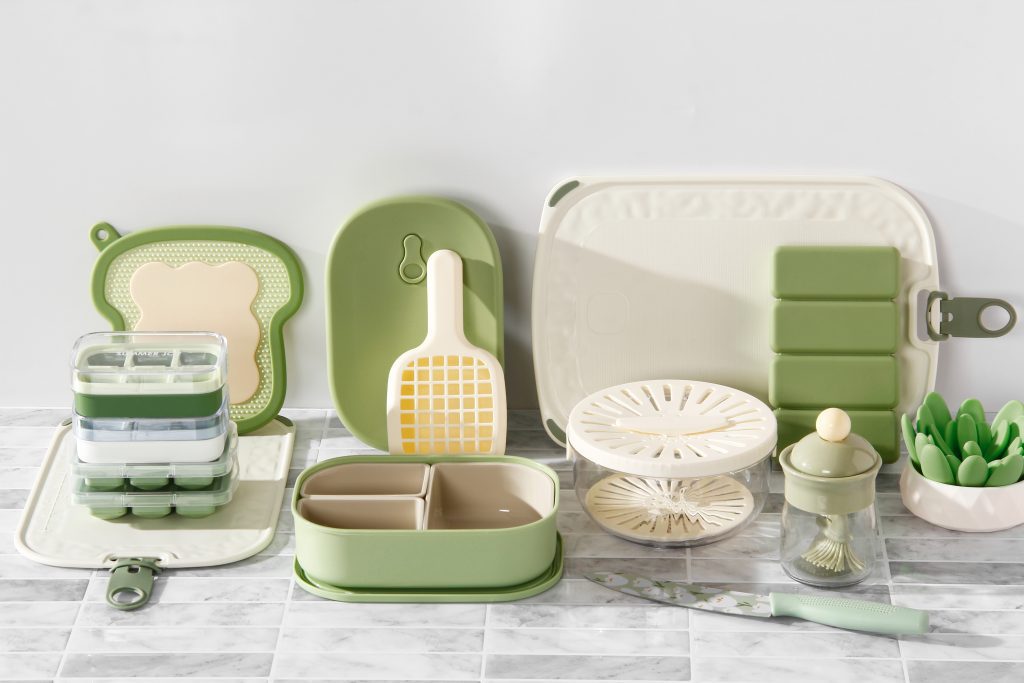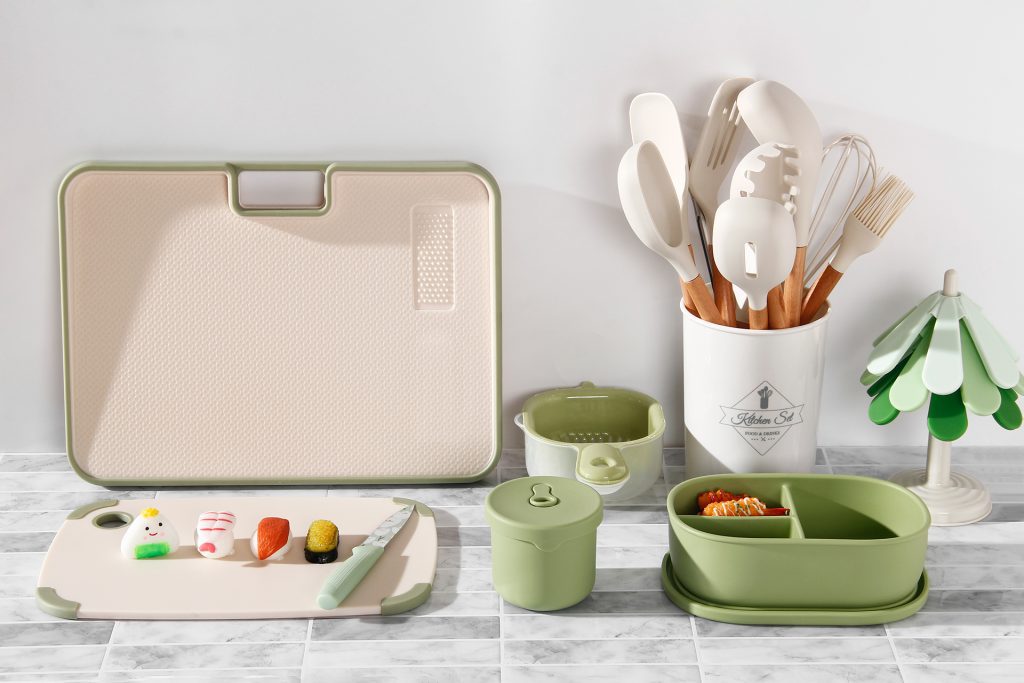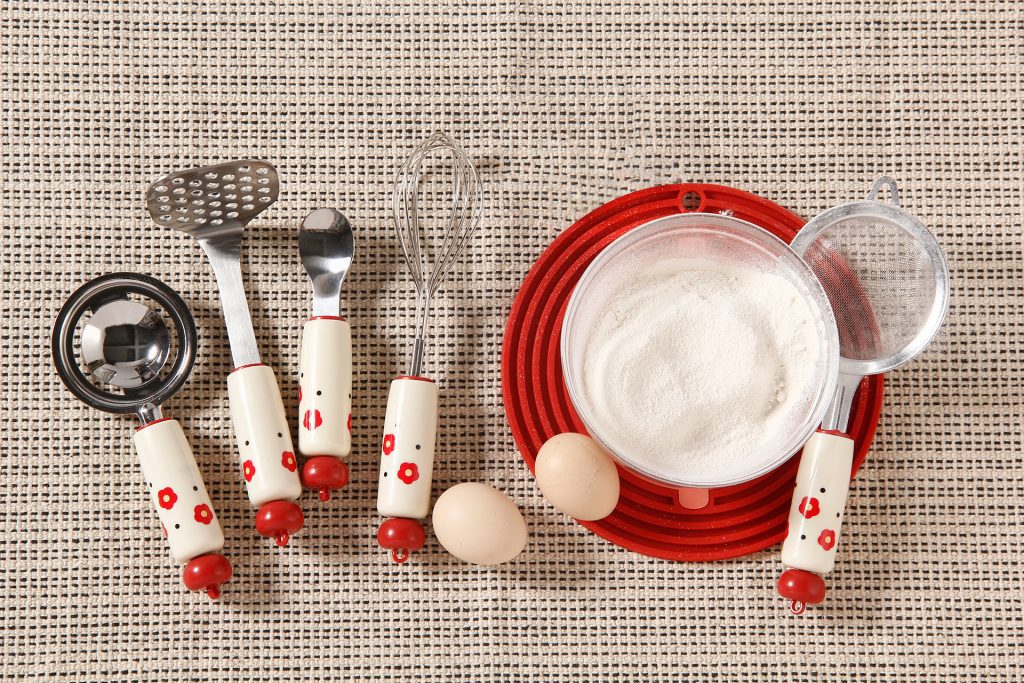As consumers become more health-conscious, the demand for products that offer enhanced hygiene and safety continues to rise. Antimicrobial agents, once primarily used in medical and healthcare settings, are now being integrated into a wide range of household and kitchen products to help combat harmful microorganisms and improve product durability. But what exactly are antimicrobial agents, and why should retail buyers and product managers care about incorporating them into their offerings?

What Are Antimicrobial Agents?
Antimicrobial agents are substances designed to kill or inhibit the growth of microorganisms like bacteria, fungi, and viruses. These agents can be either chemical or natural, and they can be applied to various surfaces and materials, including those in household and kitchen products. Antimicrobial agents are essential in preventing contamination, enhancing product longevity, and contributing to overall hygiene in the home.
Types and Functions of Antimicrobial Agents
There are several types of antimicrobial agents, each with distinct functions and applications:
- Biocides: These are broad-spectrum agents used to kill a wide range of microorganisms.
- Bactericides: Focus on killing bacteria specifically, reducing the risk of foodborne illnesses.
- Fungicides: Effective against fungi, helping prevent mold growth on products like cutting boards and dish sponges.
- Virucides: These are increasingly used in the context of global health concerns to neutralize viruses on frequently touched surfaces.
- Antibacterials: Focus on reducing bacterial growth, often found in products like kitchen utensils, food storage containers, and countertops.


Antimicrobial Agents in Household and Kitchen Products
Antimicrobial agents can be found in various household and kitchen products, including:
- Cutting Boards and Utensils: Antimicrobial-treated materials can help prevent bacterial growth after food preparation.
- Food Storage Containers: These products benefit from antimicrobial agents that prevent the growth of bacteria or mold that can spoil food.
- Cloths, Sponges, and Towels: Often prone to bacterial buildup, antimicrobial-treated fabrics help maintain hygiene over time.
- Countertops and Surfaces: Kitchen surfaces treated with antimicrobial agents can remain cleaner for longer, reducing the frequency of cleaning.
Are Antimicrobial Agents Toxic?
One common concern about antimicrobial agents is their potential toxicity. However, when used correctly and according to regulations, antimicrobial agents in household products are generally safe for consumers. Most antimicrobial agents used in kitchenware and household items are registered with the U.S. Environmental Protection Agency (EPA), which ensures they meet strict safety standards. Some popular brands of antimicrobial agents include Microban, Agion, and Biocote—all of which have EPA registration numbers, signifying their approval for consumer products.
While antimicrobial agents are designed to prevent the growth of harmful microorganisms, they are not typically harmful to humans when used in compliance with established guidelines. However, manufacturers must ensure that their products pass rigorous safety tests to guarantee their effectiveness without posing a risk to consumers.


Industry Tests and Standards for Antimicrobial Agents
Antimicrobial agents used in household products are subject to various tests and standards to ensure they are effective and safe for use. Some key tests and standards include:
- Antimicrobial Efficacy Testing: This test assesses the ability of a product or surface treated with an antimicrobial agent to inhibit the growth of microorganisms. Commonly used standards include ASTM E2180 and JIS Z 2801 (Japanese Industrial Standard).
- Food Contact Material Testing: For products that come into direct contact with food, testing is conducted to ensure that antimicrobial treatments do not leach harmful chemicals into the food. The FDA regulates such products under the Food, Drug, and Cosmetic Act.
- EPA Registration: Antimicrobial agents used in household products must be registered with the EPA to ensure their safety and effectiveness. This registration is crucial for ensuring that the product meets federal standards for safety and environmental protection.
Market Forecast and Future Trends
The antimicrobial agent market is expected to grow significantly in the coming years, driven by increasing consumer demand for hygiene-focused products. As awareness around hygiene and public health continues to rise, antimicrobial agents will see greater integration across various industries, especially in the household and kitchenware sectors.
- Growth in Kitchenware: As consumers increasingly seek products that promote cleanliness and hygiene, antimicrobial-treated kitchen products like utensils, cutting boards, and sponges are becoming more popular.
- Sustainability and Eco-Friendly Products: The growing trend toward sustainable products is pushing the development of non-toxic, eco-friendly antimicrobial agents, which could dominate the market in the future.


Why Retailers and Product Managers Should Act Now
As the demand for hygiene-enhancing products continues to grow, it is crucial for retailers and product managers to stay ahead of the curve. Integrating antimicrobial agents into household and kitchen products is not just a matter of meeting consumer expectations—it’s an opportunity to differentiate your product offerings and add value to your brand.
By offering products that meet stringent safety standards, you not only protect your consumers but also create a competitive edge in a crowded marketplace.
Call to Action:
Are you ready to take your kitchenware and household products to the next level? As a manufacturer committed to providing innovative, safe, and hygienic solutions, we can help you incorporate antimicrobial agents into your products. Contact us today to learn more about how we can help you meet the growing demand for antimicrobial-treated products and make a lasting impact on your customers’ lives.

